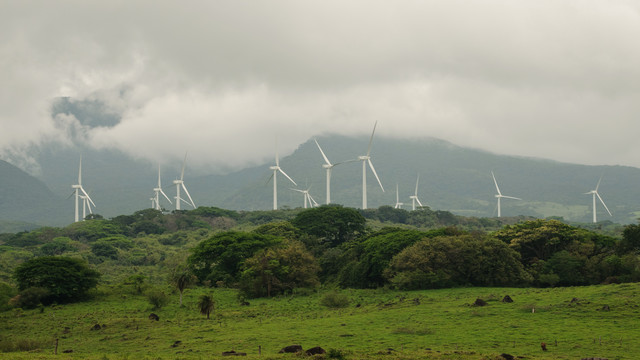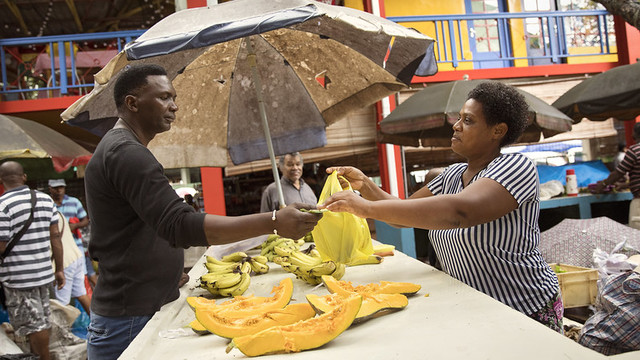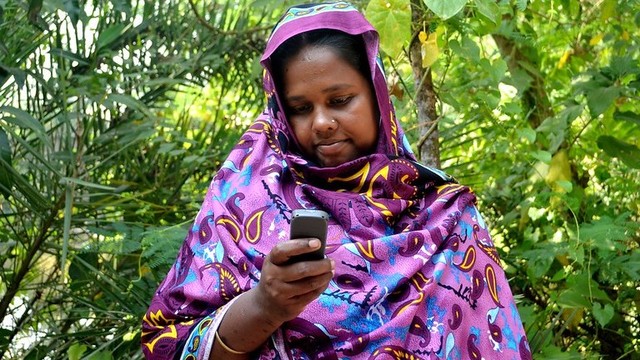Pathways to learning – finding new ways to evaluate SDG progress
The United Nations High Level Political Forum is a great opportunity to take stock of the 2030 Agenda and the Sustainable Development Goals (SDGs). With this year’s forum under way in New York, Stefano D’Errico discusses how countries can use the agenda principles as a framework to evaluate their trajectory towards sustainable development.
The High Level Political Forum is an annual opportunity to follow up and review the 2030 Agenda on Sustainable Development and progress towards achieving the Sustainable Development Goals (SDGs). This year it runs from 9-18 July.
In 2019 the theme for the meeting is ‘Empowering people and ensuring inclusiveness and equality’. As IIED embarks on its new 2019-2024 strategy, it too has identified combating inequality as one of its overarching challenges.
 UN Secretary-General António Guterres is clear that the SDGs and their many targets are the tools to achieve the 2030 Agenda, and with it, ensure equality and inclusiveness. But setting goals is one thing; showing that progress is being made is quite another.
UN Secretary-General António Guterres is clear that the SDGs and their many targets are the tools to achieve the 2030 Agenda, and with it, ensure equality and inclusiveness. But setting goals is one thing; showing that progress is being made is quite another.
Six goals – 4, 8, 10, 13, 16 and 17 – are being reviewed in depth this year. We asked Stefano D’Errico, IIED’s head of monitoring, evaluation and learning, how he thinks we should be monitoring progress.
Q. What’s the best way to monitor progress?
SD: That’s an interesting question because we’ve come to realise that there is no one way to monitor and evaluate progress against the SDGs. There’s such a difference between countries in terms of their evaluation infrastructure and readiness, that if there were only one way to do it, some countries would be able to respond and others wouldn’t.
Q. So what kind of approach should countries take?
SD: There are some countries that are struggling to meet the competing demands of several international initiatives – they may be reporting back on their Nationally Determined Contributions to the UNFCCC, or against the Sendai Framework for Disaster Risk Reduction, or against particular SDGs, for example – all with slightly different requirements. So at the very least, we need to find a way to make it easier for them.
This might be by finding ways to produce data that can serve more than one purpose, for instance. IIED has analysed good practice in countries where they are assessing climate adaptation progress and have used global MEL frameworks to improve their national M&E systems. This experience could be shared with others.
Q. Is making reporting back – or evaluation – easier going to be enough?
SD: No, what I think will really make a difference is if the reporting is integrated into what countries are already doing. So evaluation isn’t seen as a separate and siloed activity only being carried out to respond to an outside body, but is recognised as useful to achieving sustainable development within the country anyway.
Q. How would this integration take place?
SD: IIED has been working with Finland’s Ministry of Foreign Affairs, EVALSDGs and UNICEF to consider this. The first step is to think about evaluation as a tool for helping to align national policy with the principles underpinning the 2030 Agenda for Sustainable Development. In the process of this alignment, ministries can begin to understand the trade-offs and synergies between the 17 goals and start to come up with a plan for how action to achieve the goals can be integrated into development planning. The plan will be different for every country but will be based in reality and responding to country-specific priorities.
Rather than being seen as an outside demand, attaining the goals will be built into future development plans, making it more likely to be sustainable. And the 2030 principles can even be used as the framework criteria against which progress is evaluated.
Q. How are you bringing this approach to the High Level Political Forum?
SD: We are holding a side event on 17 July to hear about Nigeria and Finland’s SDG evaluation experiences. Finland is the first country in the world to have completed a country-led evaluation; Nigeria is the first country in the global South to have started a country-led evaluation on its national progress towards three SDGs that are aligned with their national priorities. (Note: the event will be broadcast live – see further details below)
The lessons we’ve learned in working out the most sustainable approach to measuring progress has been reflected in a set of guidelines, which are coming out in September 2019. We hope that national-level civil servants, who are at the centre of development planning, will find it useful to learn from the experience of other countries and apply the lessons to their own context.
We published a summary of our thinking so far in a briefing paper published last week by IIED and co-produced with EVALSDGs, UNICEF and the Ministry for Foreign Affairs of Finland.

Q. In the end, why is evaluating progress so important?
SD: The Sustainable Development Goals give us a common vocabulary for what it takes to achieve sustainable development, and with these goals all countries have the same understanding of what sustainable development entails. We are all mutually accountable for achieving the goals – unlike the Millennium Development Goals, responsibility does not rest with any one part of the world – so we are all responsible.
People have commented on how many goals there are, but development is not a linear process, as we all know, so it has to be tackled from many angles. Understanding how to evaluate those many different angles and tactics is important for understanding whether a country is getting closer to the ultimate goal of sustainable development: generating sustained human wellbeing from generation to generation.
Side event details:
Title: Evaluation to connect the SDGs with national priorities: learning from Finland and Nigeria
Date: 17 July 2019, 12.30-2pm
Location: 8th Floor, UN Church Centre (next to UNICEF House), 777 UN Plaza, New York, NY 10017, USA
This event will broadcast live online via YouTube.
Further reading
Evaluating sustainable development: how the 2030 Agenda can help, Tighe Geoghegan, Stefano D’Errico, Martin Garcia Acuña, Kassem El-Saddik, Dorothy Lucks, Ada Ocampo, Ilenia Piergallini(2019), IIED Briefing paper
Assessing adaptation results: aligning national M&E systems and global results frameworks, Neha Rai, Barry Smith, Nick Brooks (2019), IIED
IIED has published a series of briefing papers discussing the importance of evaluation in 2030 Agenda national follow-up and review processes.



